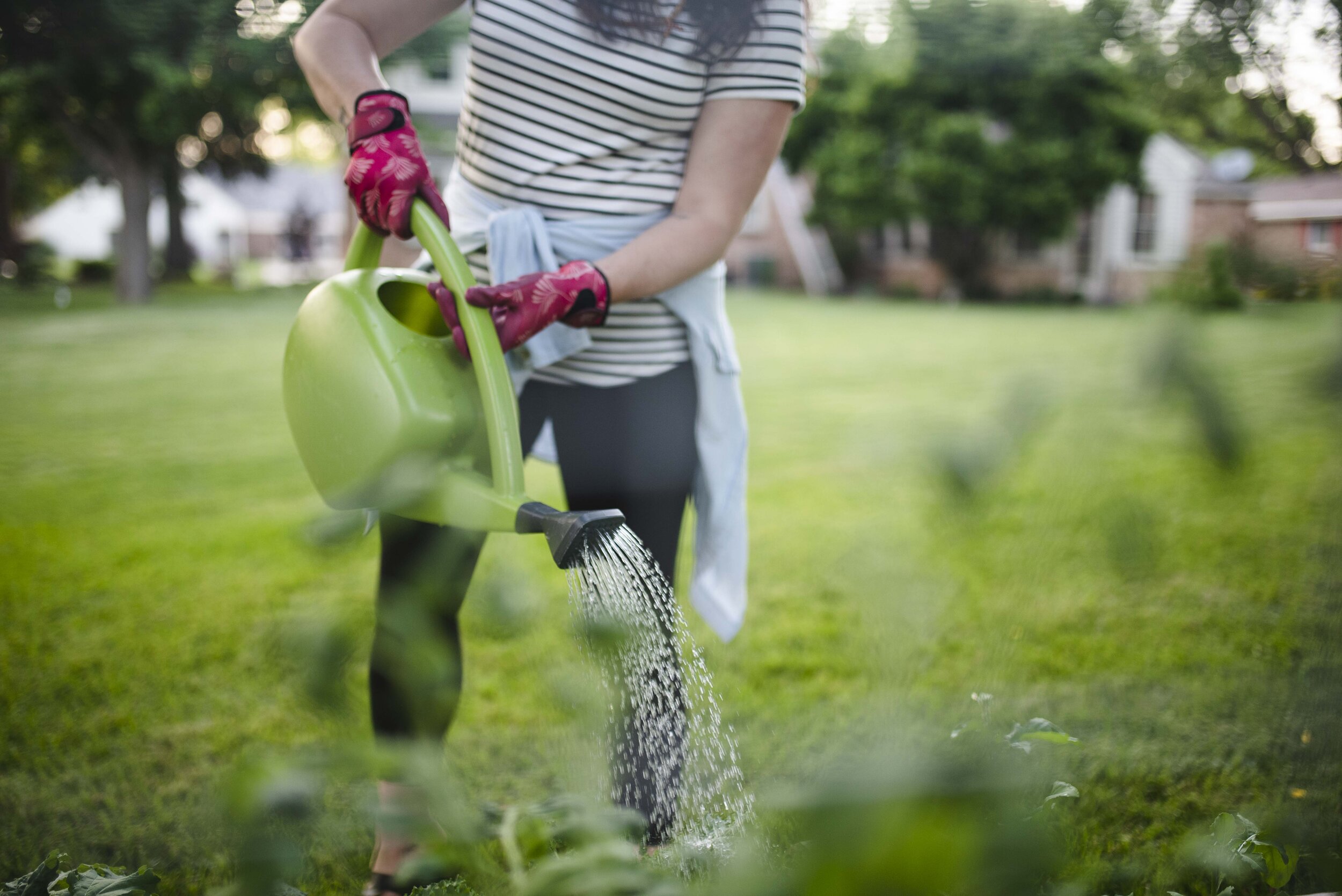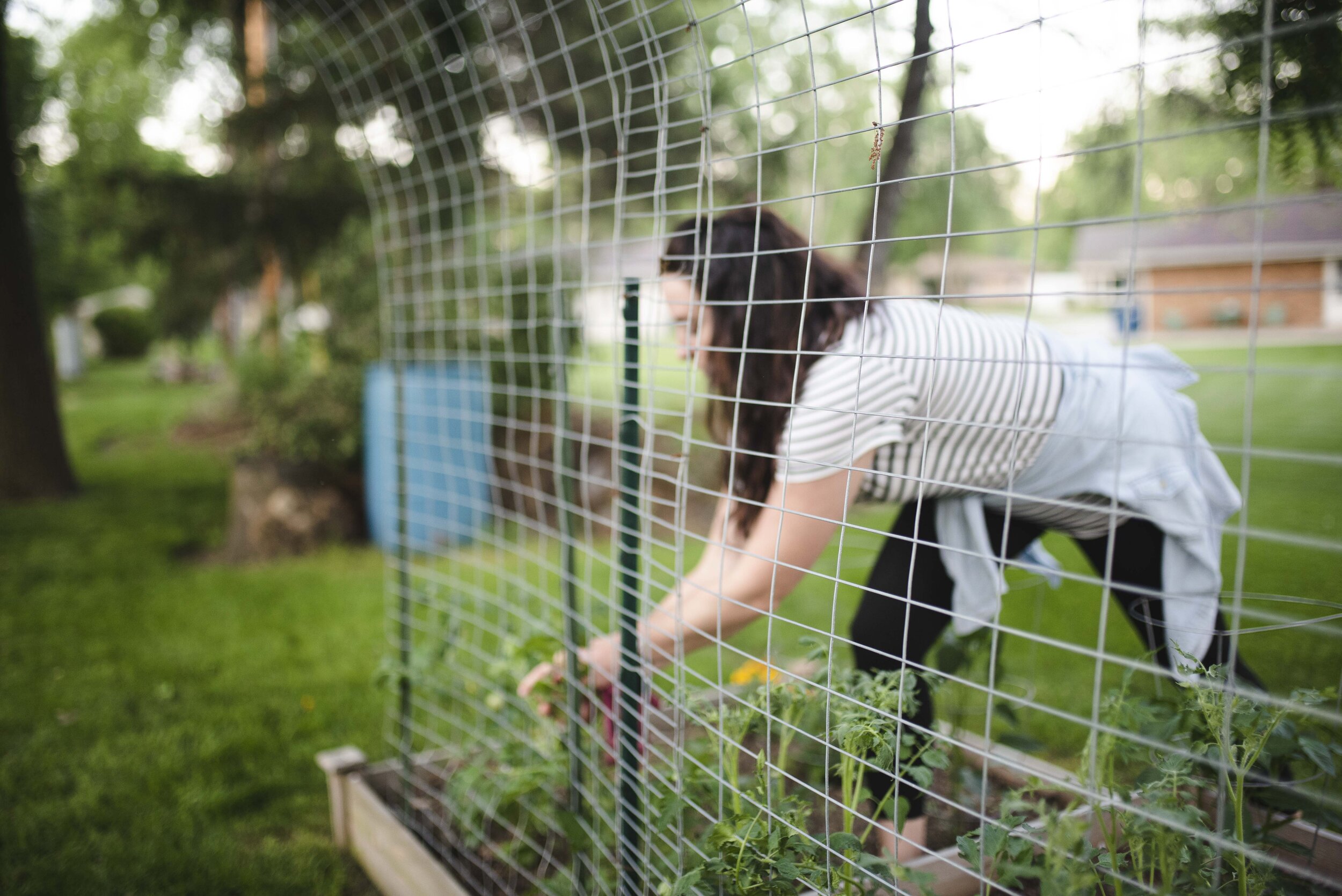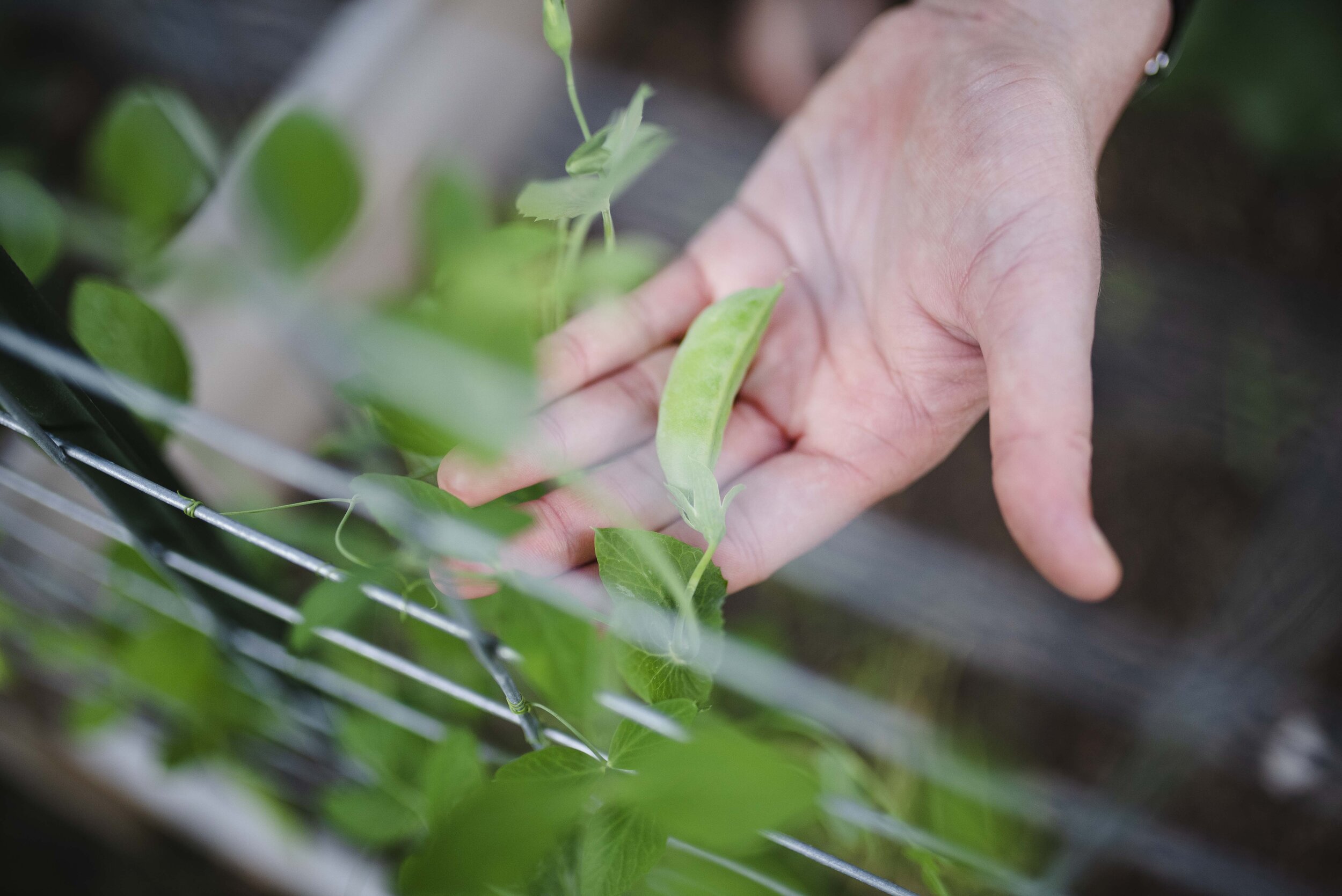Homegrown: Garden Care
“One of the most delightful things about a garden is the anticipation it provides.”
-W.E. Johns
Patience. It’s one of the most valuable lessons gardening can teach us, yet one of the hardest to learn! Our plants are finally in the ground (phew!) and now we wait for those juicy tomatoes, crunchy peppers, and buttery lettuces to grow. In the meantime, let’s talk general plant care shall we? Veggies need love and attention just like the rest of us. I’ve been known to talk to my plants and let them know what a great job they’re doing; but if talking to cucumbers isn’t your thing, fear not! Here are some pointers on how to grow the happiest plants and get the most out of your veggie garden this season.
Watering
Vegetables need at least an inch of water per week to grow properly. It’s ideal to water in the morning, but if your plants are wilting and dry, water as soon as you can. Don’t wait until the next morning. To prevent overwatering, don’t water every day. Water heavily two to three times a week (depending on rainfall) and allow soil to dry. This encourages strong roots and prevents fungus and rotting. The top inch can be dry, with the deeper soil being moist. If the top 2 inches are completely dry, it’s time to water. It also helps to spread a thick layer of mulch on top of your garden soil to retain moisture. You won’t have to water as often.
Weeding
Weeds are a true enemy to any gardener. It may be tempting to let them grow, but they must be controlled and pulled. If left in your garden, they compete with the veggies for precious water and soil nutrients. You’ll never have a completely weed-free garden, but minimizing them is key. Lay down a thick layer of mulch early in the season, as it helps dampen weed growth. I try to do a little weeding everyday to stay on top of them. Pull them out completely by the base, removing the root. Use a garden spade if needed. If your weeds are too rampant for natural removal by hand, there are a few citrus-based sprays that are safe for vegetable gardens. Be sure to thoroughly check labels before spraying anything on your garden.
Fertilizing
Even the most perfect garden soil still needs a little fertilizer boost to give us the best crops possible. I always mix compost in with my soil before planting, but as plants grow and use the nutrients, more goodness needs to be added. Timing of fertilization is key. Allow your plants to establish before applying fertilizer. Too many nutrients too early can shock your young plants. You can fertilize as soon as 10 days after planting and repeat every 2-3 weeks. Stop fertilizing when the plants reach full production, as fertilizing too late in the season will only cause more foliage growth, not increased fruit yield. Apply in the morning or evening, since plants are under most stress during the heat of the day. I use Miracle-Gro Liquafeed Tomato, Fruit, and Vegetable Plant Food, but any fertilizer for edible plants is fine. Be sure to read the labels and follow directions carefully.
Pest Control
Just like weeds, pests in the garden are inevitable. Fun stuff, right? Let’s talk about how to minimize the bugs, aphids, and neighborhood rabbits feeding off our fruits and veggies. I think the easiest way to prevent pests is to repel them naturally. This can easily be done by planting marigolds around your garden border. Pests also avoid strong scented herbs such as thyme, cilantro, lavender, basil, and chives. Healthy plants are less likely to have pests, so check for rot and fungus often. Remove any rotting fruits and leaves right away. Harvest often and pick up any fruits that have fallen, since these are an easy target for pests. As mentioned above, watering in the morning also prevents pests. Leaves will have time to dry throughout the day and will be less attractive to moisture lovers like slugs and snails. Luckily, my two dogs Penny and Banjo scare away any animals that would come snack on our garden. If you don’t have your own K9 garden security guards, a small garden fence is ideal for keeping out wildlife garden eaters.
Next time I’ll have unique uses and recipes for your homegrown herbs. Until then, happy growing!
-Megan






